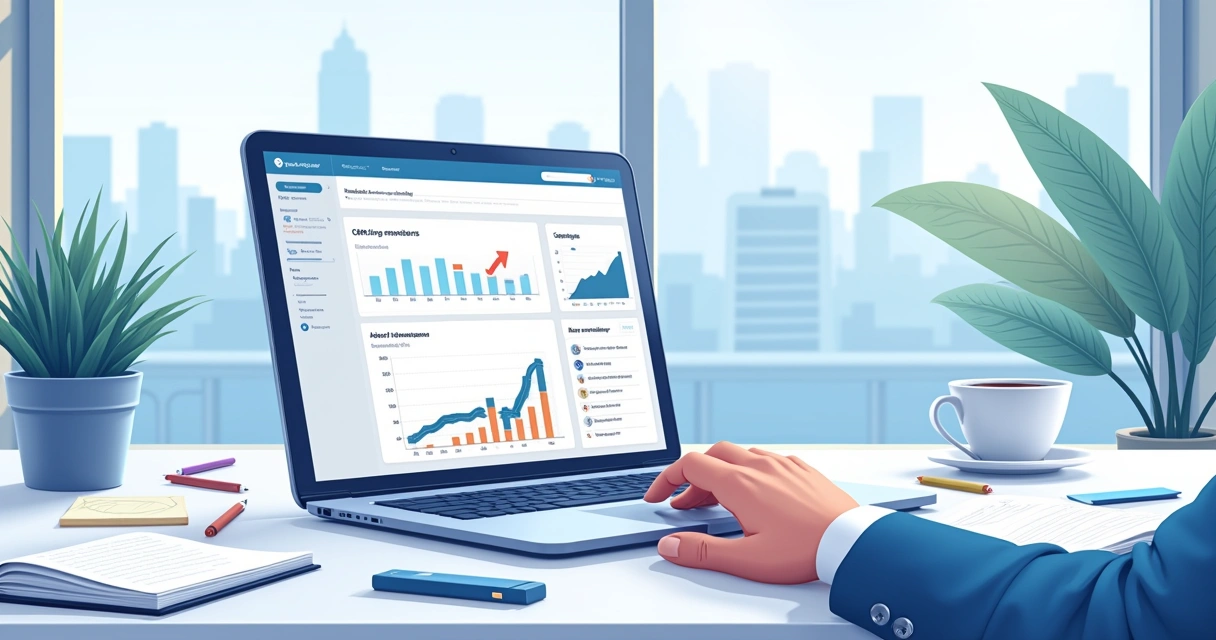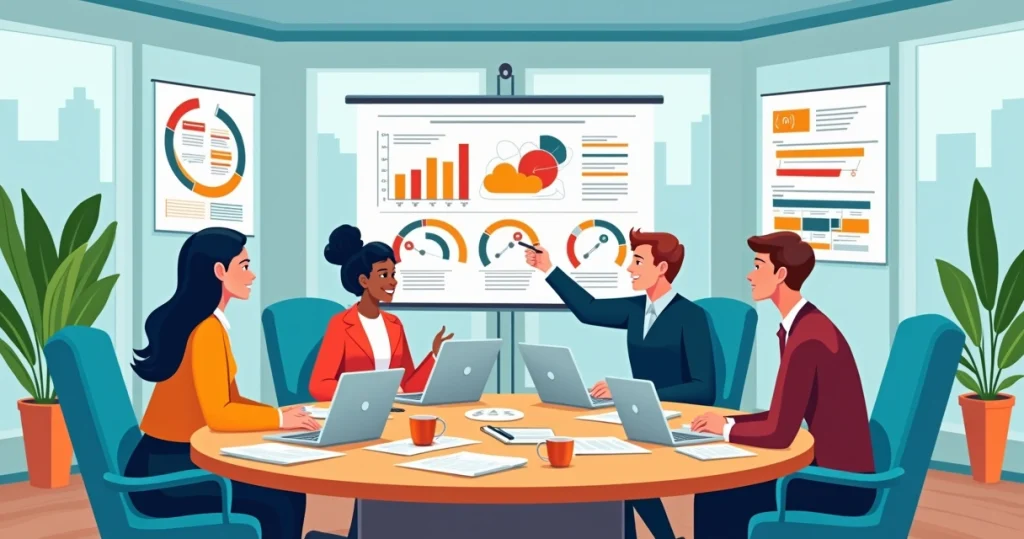Understanding the importance of client relationships in consulting
Building strong client relationships is vital for your success as a consultant. When clients feel appreciated and understood, they are more likely to stick with you. This loyalty leads to repeat business and valuable referrals, which are essential for any consultant looking to grow.
Think about your own experiences. When someone listens to your needs, it creates trust and a sense of connection. By truly understanding your clients’ challenges and goals, you can offer solutions that fit them perfectly. For instance, instead of just pushing a one-size-fits-all approach, tune in to their unique situation.
Using a tool like Atlas CRM can make a real difference. By keeping track of client interactions and data, you can personalize your approach. Remember, investing time in these relationships will not only enhance satisfaction but will also pave the way for your long-term success as a consultant.
 What is client relationship management (CRM) and why it matters for consultants
What is client relationship management (CRM) and why it matters for consultants
Client Relationship Management, or CRM, is all about how businesses keep track of their interactions with clients. If you’re a consultant, having a solid CRM system can make a big difference in how you build and maintain relationships. Imagine how much smoother your work would be if you didn’t have to dig through endless emails and notes just to recall a detail about a client’s needs. With a good CRM, all that relevant information is organized and easily accessible, helping you communicate better with your clients.
For instance, when you log your calls, emails, and meetings with clients, you can start to see patterns in their preferences and behaviors. Do they prefer emails over phone calls? Are they more responsive after a meeting? By understanding these details, you can customize your approach, which can lead to a stronger bond between you and your clients.
Using tools like Atlas CRM can simplify this whole process. It not only makes your workflow easier but also helps you stay engaged with your clients in the long run. Being able to keep track of potential leads in a neat and organized manner is essential. This can set you apart in a competitive market.
Remember, CRM isn’t just a piece of software; it’s more of a commitment to excellent service. When you embrace this mindset, you demonstrate your dedication to understanding and meeting your clients’ needs. After all, building strong relationships is the foundation of successful consulting. So why not start today by investing in your CRM journey? It could unlock new possibilities for you and your business!
Key features of effective CRM systems for consultants
Choosing the right CRM (Customer Relationship Management) system can make a big difference for consultants. A good CRM helps you manage clients effectively while saving time and energy. Here are some key features to look for that can truly enhance your consulting practice.
- Integration with Tools: It’s crucial to find a CRM that works well with tools you already use, like Google or Outlook. When your emails and calendar are synced automatically, you can spend less time navigating between apps and focus more on your clients.
- Centralized Client Database: A solid CRM will allow you to keep all client information in one place. Imagine having access to all your conversations, notes, and contact details at your fingertips. This centralized view makes follow-ups easier and ensures you don’t miss any important details.
- Customizable Tagging: Tagging clients based on their characteristics can help you communicate better. For instance, you can categorize them by industry or the services they need. This allows for targeted messaging, so you can reach out to the right clients at the right time.
- Visual Sales Pipeline: A visual pipeline showcases where each client stands in your sales process. This makes it easier to see which deals are moving forward and which ones might need extra attention. A clear view helps to adjust your approach quickly.
- Automated Reminders: A CRM that sends reminders for follow-ups can be a lifesaver. This feature ensures you never forget important meetings or deadlines, allowing you to stay on track with your clients.
Using a CRM that includes these features can transform your consulting business. For instance, consider Atlas CRM. It offers a user-friendly experience with all the essential tools you need. You can even import leads from LinkedIn with a simple Chrome extension, making it easier to expand your network.
Ultimately, the right CRM can provide structure to your practice. By streamlining your workflow, you can devote more time to what truly matters: cultivating strong relationships with your clients. Remember, the goal of any CRM is to simplify your work while enhancing client interactions. Make sure the one you choose aligns effectively with your consulting goals.
 Benefits of using CRM for lead management and business development
Benefits of using CRM for lead management and business development
Using a CRM system for managing leads and developing your business can be a game-changer. Instead of relying on scattered notes or multiple spreadsheets, a CRM organizes all your prospects in one place. This means you can easily track your interactions, set reminders for follow-ups, and keep the momentum going in your conversations.
Have you ever lost track of a potential client? With a well-structured CRM, you won’t have to worry about that anymore. Every detail—like what you discussed and the next steps—can be logged in real-time. This helps ensure that your communication remains consistent and professional. When a client feels that you remember their concerns and preferences, it builds trust, which is essential for strong relationships.
Another great advantage of a CRM is the ability to analyze your leads. Many systems come with reporting tools that show you which marketing efforts are paying off. For instance, if you notice that leads from LinkedIn are turning into clients more often than those from email newsletters, you can shift your strategy to focus on platforms that work best for you. This kind of insight is crucial for driving your business forward.
Additionally, organizing leads lets you prioritize your time. Not every prospect will have the same potential value, and a CRM can help you identify who to focus on first. Imagine being able to spend more time nurturing high-quality leads rather than getting bogged down with less promising ones. This prioritization increases your chances of converting leads into loyal clients.
Ultimately, using a CRM effectively frees you up to concentrate on building relationships. The technology handles repetitive tasks, allowing you to engage more meaningfully with your prospects. When you understand their needs and challenges, you position yourself as a trusted advisor rather than just a consultant. A strong relationship with clients can lead to increased business opportunities and referrals.
Organizing client information for better results
Managing client information is essential for any consultant looking to thrive in their field. When you keep your client data organized, you work more efficiently and make better decisions. Picture this: you’re preparing for a meeting, and all the important details are right in front of you. This kind of organization not only saves time but also enhances your interactions.
One great way to achieve this is by using a CRM system like Atlas CRM. It’s easy to use and lets you store all your client interactions, history, and preferences in one place. Imagine how much easier your job would be if you didn’t have to dig through scattered notes or lengthy email chains to find information. Everything you need can be neatly organized, saving you time and effort.
Here are some simple steps to help you keep your client information in order:
- Centralized Database: Keep all client data in one platform. This avoids confusion and makes communication simpler. You can easily reference a client’s history or preferences without hassles.
- Regular Updates: Make it a habit to update client information right after interactions. This ensures you always have the latest info at hand for your next conversation.
- Use Tags: Categorizing clients based on their industry, purchase history, or engagement levels can help you tailor your follow-ups. For example, you could tag clients who need special attention.
- Document Everything: Write down notes right after meetings. This helps you remember key details and shows clients you care about their needs.
- Leverage Automation: Utilize features within your CRM to automate data entry when possible. This reduces your workload, allowing you to focus more on your clients.
By organizing your client information effectively, you create a strong foundation for better communication and relationships. It’s about understanding your clients deeply, which leads to personalized interactions. This, in turn, enhances engagement and improves business outcomes. So, embrace these strategies to elevate your consulting practice.
 Tracking communication history to improve client engagement
Tracking communication history to improve client engagement
Keeping track of your interactions with clients is vital for building strong relationships. It helps you stay organized and remember important details. When you know how you’ve communicated with someone, you can tailor your conversations and show that you care. Here are some easy ways to track your communication history:
- Document Everything: Make it a habit to jot down every email, call, and meeting. This simple practice creates a record you can refer back to anytime. No more second-guessing what was said before!
- Pick a System: Choose what works for you—whether it’s an app, a spreadsheet, or good old-fashioned notes. The important thing is to use it consistently and keep it up to date.
- Review Before Meetings: Take a few minutes to check on past conversations before meeting a client. This preparation helps you stay relevant and shows you value their input.
- Follow Up: If a client shares something exciting, like a project or a personal milestone, be sure to bring it up in future conversations. This personal touch makes a big difference.
- Look for Patterns: Over time, notice how your clients prefer to communicate. Do they like emails instead of phone calls? Adapting to their style can make communication smoother.
By keeping a record of your communication, you show your clients that they matter. It helps you cultivate a welcoming environment where clients feel understood. Remember, the goal is to build relationships based on trust and understanding. The more you know about your clients, the better you can connect with them. And that connection is what truly makes a difference in your work.
Segmenting clients for personalized follow-ups
Segmenting your clients is a smart way to improve your follow-ups and build stronger relationships. By dividing your clients into specific groups, you can communicate with them in a way that truly matters to them. This method not only saves time but makes your conversations feel personal and engaging.
Think about how impactful your messages could be if they actually addressed what your clients care about. For example, if you have clients from different industries, separating them allows you to share insights that are relevant. A tech company would appreciate updates on the latest tools, while a nonprofit might value tips on fundraising. This tailored approach makes it easier to connect.
Here are some simple steps to help you get started with client segmentation:
- Identify Your Groups: Reflect on what makes each client unique. This could include their industry, their needs, or how long they’ve been with you. For instance, you might have a category for new clients who need guidance and another for long-term clients who are more independent.
- Create Simple Tags: Implement tags to label your clients clearly. Tags like “High Priority,” “Needs Follow-Up,” or “Interested in Workshops” can help you quickly find and sort clients based on their needs.
- Monitor Their Engagement: Pay attention to how clients respond to your emails and messages. If someone engages often, make them a priority. They’re likely interested in what you have to say.
- Customize Your Messages: Use the information from your segments to send tailored messages. Clients interested in personal development might welcome articles on skills improvement, while others may need project updates.
- Review Regularly: Check how your segments are performing. If certain groups respond better, adapt your approach to keep everyone engaged.
By taking time to segment your clients well, you’re not just saving yourself effort—you’re also building stronger, more meaningful connections.
 Reducing administrative workload with CRM tools
Reducing administrative workload with CRM tools
Managing your workload as a consultant can feel overwhelming, especially when juggling multiple clients. That’s where CRM tools come into play. These tools can be game-changers, helping you simplify and automate many tasks that eat up your valuable time.
Think about it: how much time do you spend on data entry and follow-up emails? With a good CRM, you can let technology handle those repetitive tasks. For example, instead of manually logging every interaction with a client, a CRM can automatically record those notes after a meeting or phone call. This means less time typing and more time working on what really matters.
Additionally, having a centralized database is a huge advantage. Rather than digging through various documents and software for client information, everything you need is in one place. Imagine preparing for a meeting and having instant access to all client details and past conversations. It not only saves time but also helps you feel more prepared and professional.
Another helpful feature of CRM tools is their ability to automate communications. You can set up reminders for appointments or send personalized follow-up messages without lifting a finger. This keeps your clients engaged while you focus on your consulting work. For instance, a simple thank-you note after a significant meeting can be automated, making it easy to maintain those important relationships.
In the end, using a CRM doesn’t just cut down on admin tasks; it allows you to connect with clients more meaningfully. By spending less time on paperwork, you can dedicate your energy to what you do best—providing excellent consulting services. Embrace the efficiency a CRM offers, and watch your productivity soar.
Real-life examples of successful practice management with CRM
Running a consulting business can be exciting, but it often comes with its own set of challenges. Many consultants struggle to keep track of their clients, deadlines, and leads. That’s where a Customer Relationship Management (CRM) system can make a huge difference. Let’s explore how these systems have helped real consultants and how they could benefit you too.
Take Sarah, for example, a marketing consultant. Before she started using a CRM, she relied on spreadsheets and scattered notes to manage her clients. This often resulted in chaos. She frequently missed follow-ups and lost track of important client details. Once Sarah adopted a CRM, everything changed. She could centralize all **client information** in one place. When meeting a client, all their history, preferences, and past interactions were just a click away. This newfound organization led to higher client satisfaction and an impressive increase in referrals.
Now let’s talk about Mike, a tech consultant who faced a different hurdle. He had numerous leads coming in from various channels, and keeping up became overwhelming. By organizing his leads in a CRM, he could categorize them based on their status—whether they were interested, in discussion, or already converted. This allowed Mike to focus his efforts on the most promising leads first. He discovered that following up a few days after the initial contact significantly boosted his conversion rates. With the data organized, Mike became more strategic in his outreach.
Then there’s Jonathan, a personal development coach. Like many coaches, he had a diverse client base, each with unique needs. Before using a CRM, he often felt lost trying to meet everyone’s expectations. By segmenting his clients in the CRM, he could tailor his sessions to their individual goals and progress. This not only saved him time but also enriched the experience for his clients, making their sessions more impactful.
These stories show just how beneficial a CRM can be for your consulting practice. By organizing your client relationships, tracking important interactions, and gaining insights from the data, you work smarter, not harder. As you consider how to improve your practice, think about the potential of a CRM. It could be the key to maximizing your efficiency and ultimately growing your business.
Conclusion: Elevating your consultancy with effective CRM practices
Managing your client relationships is crucial for success. A good CRM system can help you keep track of everything that matters. Instead of scrambling to remember each client’s needs, imagine having all their information right at your fingertips. With a tool like Atlas CRM, you can easily see past interactions and preferences. This means you can offer a more personalized experience that clients truly value.
Think about how much time you could save! Instead of spending hours on admin tasks, you can focus on what really matters: building strong connections. When you prioritize your clients’ needs, you become more than just a service provider; you become a trusted advisor. So, stop merely managing your clients and start engaging with them. By embracing these practices, you not only enhance their experience but also boost your consultancy’s reputation in the long run. It’s time to make those client relationships shine!







